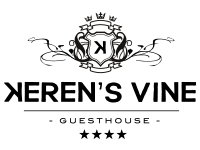Travel Preparations
Your passport has to be valid for at least another 6 months beyond the date of entry. EU citizens do not require a Visa. On arrival in South Africa you have to present proof of dated return (e.g. ticket/ e-ticket).
Restaurant Conduct
Upon entrance you will be shown and/ or escorted to your table. Tips are generally not included in the bill and it is common practice to Tipp in between 10-15% of the total bill amount. Waitrons are dependant on the tips received, as their basic income is very low. On tables of 6 or more people or bills exceeding a certain amount however, tip is usually included; so do not hesitate to ask when in doubt.
Photographing
South Africa and the Western Cape is the perfect backdrop for any photographer. As in any foreign culture please don’t forget to ask your desired subject of willing to be photographed (especially in areas such as the Bo Kaap, largely inhabited by muslims), religious inclinations and beliefs should always be considered.
Parking
Almost all parking bays have parking assistants, who gladly lend a hand in helping you park your car in and out, watch it in your absence and are happy when given 5 Rand in return.
Sun Protection and Weather
Don’t underestimate Africa’s sun; use sun protection (sun cream, long clothes, umbrellas). The Western Cape is known for 4 seasons in one day, so always be prepared for a sudden onset of cold, especially when planning into the late of day or evening.
Strolls, Hikes and Mountain Walks
The Western Cape boast with scenic walks and mountain tours to varying degree of difficulty. Keep in mind, that a stroll up Table Mountain however, can be very taxing and requires sound food-wear, warm clothes, sunscreen, a hat and plenty of water. Don’t hesitate to ask us about routes and maps.
Vaccinations
The Cape Region requires no particular vaccination. The drinking water is of good quality and although the medical care facilities of the Cape are of top standards, a travel insurance for you should be mandatory and don’t require that much of an investment.
Electricity
Our adapters should cater for all your needs, having a 220V electrical supply.
Phone
3 Rand will get you a pre-paid card, which have to be registered and we can assist you with.
Money
You can draw at any ATM-machine with your EC or Credit/Debit Card. You can pay by Visa or Mastercard but keep in mind that you will pay additional charges.
Seasons
Here, seasons work the other way around – summer spans from Oct-Apr. Germany and South Africa run on the same time during summer whereas in (European) winter brings an hours (forward) shift.
Driving
South Africa is left-driven, max speed limit being 120km/h, rural areas limited to 100km/h and inner city traffic 60km/h. There are numerous radar-activated speed traps and rental car companies will bill you even belatedly on your credit card.
On terms of driving regulations you will find similar rules to Germany with one difference in the right of way. At 4-way stops displaying a number such as 3 for 3 streets or 4 for 4 streets, cars stop and drive off respective of who arrived first… may sound chaotic but works better than most other right of way rulings.
Watch out when on foot, even after a few weeks (or a good glass of wine) you might still look into the wrong direction first. Don’t trust zebra crossings and pedestrian robots – always look before walking.
Petrol stations are always in close proximity in cities, strategically placed on highways. You will not be required to fill your own tank, just tell the petrol assistant, how much petrol you want and all will be done inclusive cleaning your windscreen, for which most people give 10 Rand.

